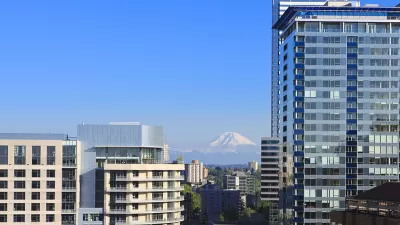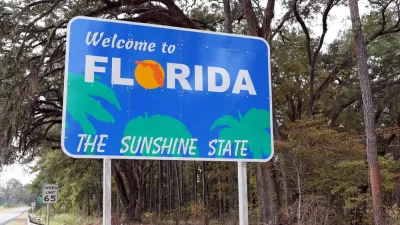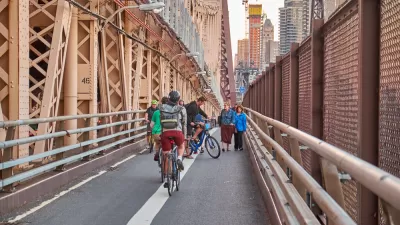To what degree are people's location decisions dictated by their consumer preferences? Jordan Weissmann of Slate Magazine discusses whether living in an expensive city like New York City is a consumption choice.
New York City is one of the most expensive cities in the United States. Affluent families living in the city sometimes consider themselves middle class due to the high cost of living. However, using Census Bureau data, Weissmann found that the overall income distribution in New York City, “is surprisingly similar to that of the United States writ large. For instance, in the U.S., about 22 percent of households earn at least $100,000 in a year. Across the five boroughs, it’s 25 percent; nationwide, just 4.6 percent of households earn at least $200,000, while in NYC, 6.9 percent hit that mark.”
According to Weissmann, some people argue, “that living in an expensive city like New York is a “consumption choice”—just like buying a fancy car or adding a pool into your backyard... [However,] people are drawn to cities that offer career opportunities and are tied to them by personal relationships that they can’t just pick up and move if they want a cheaper home... That said, choosing an especially expensive neighborhood in the city you call home is mostly a consumption decision. You might think that living within walking distance of a pretty park or a yoga studio is essential to your mental health, but in the end those are amenities, and enjoying them, along with all the other benefits of living in New York City, is a luxury.”
Indeed, neighborhood choice as a consumption decision is illuminated when Weissmann charts the income distributions of the five unique boroughs of New York City. Manhattan has a high skew of 17 percent of residents earning $200,000 or more annually, compared with only 4.6 percent nationwide, while the park-poor Bronx neighborhood only has 1.4 percent of residents earning such high salaries.
FULL STORY: Is Living in an Expensive City a “Consumption Choice,” Just Like Buying a Fancy Car?

Planetizen Federal Action Tracker
A weekly monitor of how Trump’s orders and actions are impacting planners and planning in America.

San Francisco's School District Spent $105M To Build Affordable Housing for Teachers — And That's Just the Beginning
SFUSD joins a growing list of school districts using their land holdings to address housing affordability challenges faced by their own employees.

The Tiny, Adorable $7,000 Car Turning Japan Onto EVs
The single seat Mibot charges from a regular plug as quickly as an iPad, and is about half the price of an average EV.

Trump Approves Futuristic Automated Texas-Mexico Cargo Corridor
The project could remove tens of thousands of commercial trucks from roadways.

Austin's First Single Stair Apartment Building is Officially Underway
Eliminating the requirement for two staircases in multi-story residential buildings lets developers use smaller lots and more flexible designs to create denser housing.

Atlanta Bus System Redesign Will Nearly Triple Access
MARTA's Next Gen Bus Network will retool over 100 bus routes, expand frequent service.
Urban Design for Planners 1: Software Tools
This six-course series explores essential urban design concepts using open source software and equips planners with the tools they need to participate fully in the urban design process.
Planning for Universal Design
Learn the tools for implementing Universal Design in planning regulations.
Smith Gee Studio
City of Charlotte
City of Camden Redevelopment Agency
City of Astoria
Transportation Research & Education Center (TREC) at Portland State University
US High Speed Rail Association
City of Camden Redevelopment Agency
Municipality of Princeton (NJ)





























